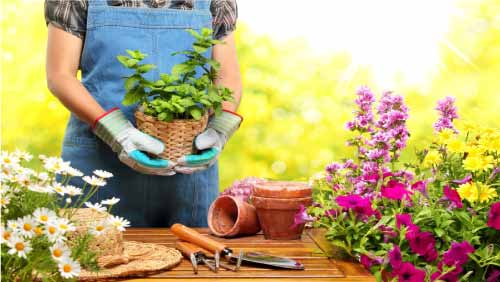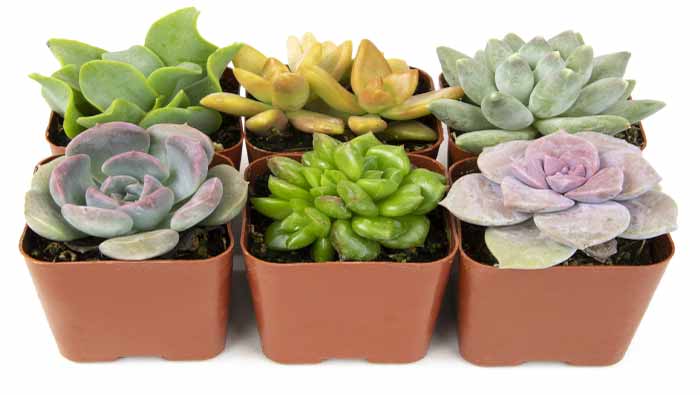If you are looking for a natural way to feed your plants, then you can make your own organic fertilizer at home. There are some simple methods you can try, such as compost tea, which is similar to traditional compost. You can make it at home using any type of organic waste and water, and you can store it for future use in an airtight container.
Eggshells
Eggshells are rich in calcium, phosphoric acid, nitrogen and other trace elements that are essential for plant growth. Calcium is a vital element that is required for most cells of a plant and is especially necessary at the growth tips of the roots. As a result, eggshells are often brought directly to the garden and used as fertilizer. However, it is important to keep eggshells dried and stored properly to avoid the smell of rotten egg.
To prepare eggshell fertilizer, you must first rinse the eggshells thoroughly with warm water. This step will remove the protein residue that causes the eggshell to rot and release an unpleasant odor. You can then crush the shells into powder by hand or with a rolling pin and store them in a container or jar. You can store the powder in a glass jar or cloth bag. Should avoid using plastic containers, as they will prevent the eggshells from aerating properly.
To use eggshell fertilizer for your plants, you should use a moderate amount per plant. For best results, you should use 4 tablespoons of eggshell powder per gallon of water. The solution can be spread over the ground in a circular shape, but you should not overload the plants using too much.
Molasses
Blackstrap molasses is a plant-friendly fertilizer that has several uses, including fertilizing houseplants. Its high phosphate content stimulates flower production and root growth. It also promotes the health of soil microbes. When mixed with water, it forms a liquid that can be sprayed on plants. You can also buy liquid black molasses at any grocery store. Another versatile fertilizer is apple cider vinegar, which has many uses, including fertilizing plants.
To make blackstrap molasses fertilizers at home, you need to mix two tablespoons of blackstrap molasses with a gallon of water. It should be cooled before handling so that it does not get too hot. Then, mix a tablespoon of apple cider vinegar. Once mixed, the solution can be applied to the plants with a manual sprayer.
Using molasses for your plants has many benefits, including improving soil fertility and preventing pests. This organic compound is a natural fertilizer that can replace commercially prepared fertilizers. It can also be more cost-effective than using chemical solutions.
Gelatin powder
Gelatin powder is a simple and effective way to provide a nitrogen booster to your plants. It helps plants develop large, strong leaves and foliage. To use gelatin as fertilizer, dissolve a package in a liter of water. Pour the solution into the soil of your plants once or twice a month.
Depending on the pH level of your soil, unflavored gelatin will work as fertilizer for most plants. However, unflavored gelatin is not recommended for fruit plants. It will increase the size of the plant, especially the size of the leaf, but it will not increase the yield. Gelatin is a natural source of nitrogen. You can buy unflavored gelatin in the baking aisle of your grocery store.
Using gelatin powder as fertilizer is easy and inexpensive. It is a low-calorie organic fertilizer that contains a lot of nitrogen. Unlike other fertilizers, gelatin is safe for your plants. You can use it on the seeds, flowers, or shrubs of your plants, but always be sure to sterilize your equipment.
A gelatin solution is a great way to replace nitrogen and ash in your soil. It’s easy to do. Mix one cup of unflavored gelatin powder with three cups of water. You can then pour this mixture over the soil around your plants once a month. It is also useful to water the plants with a weak solution of green tea. Simply add a tea bag to 2 gallons of water.
Compost tea
Compost tea can be made at home using water from a water softener or rainwater. You should use water that does not contain chemicals or salt. After making compost tea, you can spread it around your garden. Compost tea should be removed regularly to ensure that the compost infusion absorbs the water and nutrients it contains.
You can use compost tea for a variety of plants, including seeds, potted plants, and annuals. However, tea is better used on mature plants than seedlings, as it can burn foliage. You can also add compost tea to your plant sprayer and sprinkle the mixture directly onto the leaves. Compost tea will help boost the growth of your plants.
Compost tea is an all-natural organic fertilizer that takes advantage of the nutrients found in compost. You can apply it directly to plants or use it as starter water for a newly planted tree. It is also effective on houseplants, such as spider plants, peacock plants, festive cacti and Easter lilies.
Manure as organic fertilizer at home
Fertilizer is an important part of growing plants. You can buy fertilizers that have the nutrients your plants need, or you can make your own with the materials you already have in your home. One method is to use animal manure, which releases nutrients into the soil and enriches it. Just make sure the manure has aged for at least 6 months before using it. Also, be careful with animal manure because it can contain harmful bacteria and parasites.
Unlike commercial plant foods, homemade fertilizers are inexpensive and are a great way to enrich your soil. You can use a mixture of four ingredients to produce an easy-to-use solution. Store the solution in an airtight container and apply it to your plants once a month. For best results, mix 1/8 to 1/4 cup of concentrated fertilizer in four cups of water.
Another option is to use the remains of your kitchen as organic fertilizer at home. However, you should remember that these can damage your plants if not applied correctly. Eggshells, for example, are a natural fertilizer containing calcium and trace elements.
Compost tea with micronutrients as organic fertilizer at home
Compost tea is a great way to supply micronutrients to your plants. You can do it at home using a bucket or pillowcase. You can also use this compost tea to water your plants. This tea should be prepared in 24 hours. If left outside longer, the tea will become contaminated with harmful bacteria, such as salmonella and E. coli. When compost tea is left out, it also becomes anaerobic, which promotes the growth of bacteria and viruses.
Compost tea contains beneficial microbes that are crucial for soil health. These microbes consume organic matter and release nutrients and carbon to plants. In addition, certain microbes degrade harmful pathogens and fungi that live in the soil. These microbes also improve soil structure and improve water retention.
Compost teas contain a lot of beneficial microbes and other compounds that are beneficial to plants. These living organisms help break down the soil, provide nutrients to plants, and make the soil more fertile. The final product can be used as foliar dew, soaking the soil or even incorporated into your irrigation system.
Lawn trimmings as organic fertilizer at home
Lawn clippings are an excellent source of nitrogen. They also break down quickly and combine well with other fibrous materials. Lawn clippings can also be used as mulch to retain moisture and suppress weeds. Trimmings should be distributed between 2 and 3 inches around the root system of your plants. This mixture can be added to the soil several times during the season.
You can use grass clippings for flower beds and orchards. Freshly mowed grass tends to form a mat after mowing. By simply throwing these cuts into a compost pile, you run the risk of your compost pile smelling and running slowly. In addition, lawn clippings tend to compact and are not properly aerated , which kills microbes in the soil.
Lawn clippings contain nitrogen, phosphorus and potassium. This means that grass trimmings are equivalent to 4-1-2 fertilizer and break down more slowly than fertilizers that are only used for soil. You can use lawn clippings in your garden as mulch and also to add to your compost pile as a source of nitrogen.


